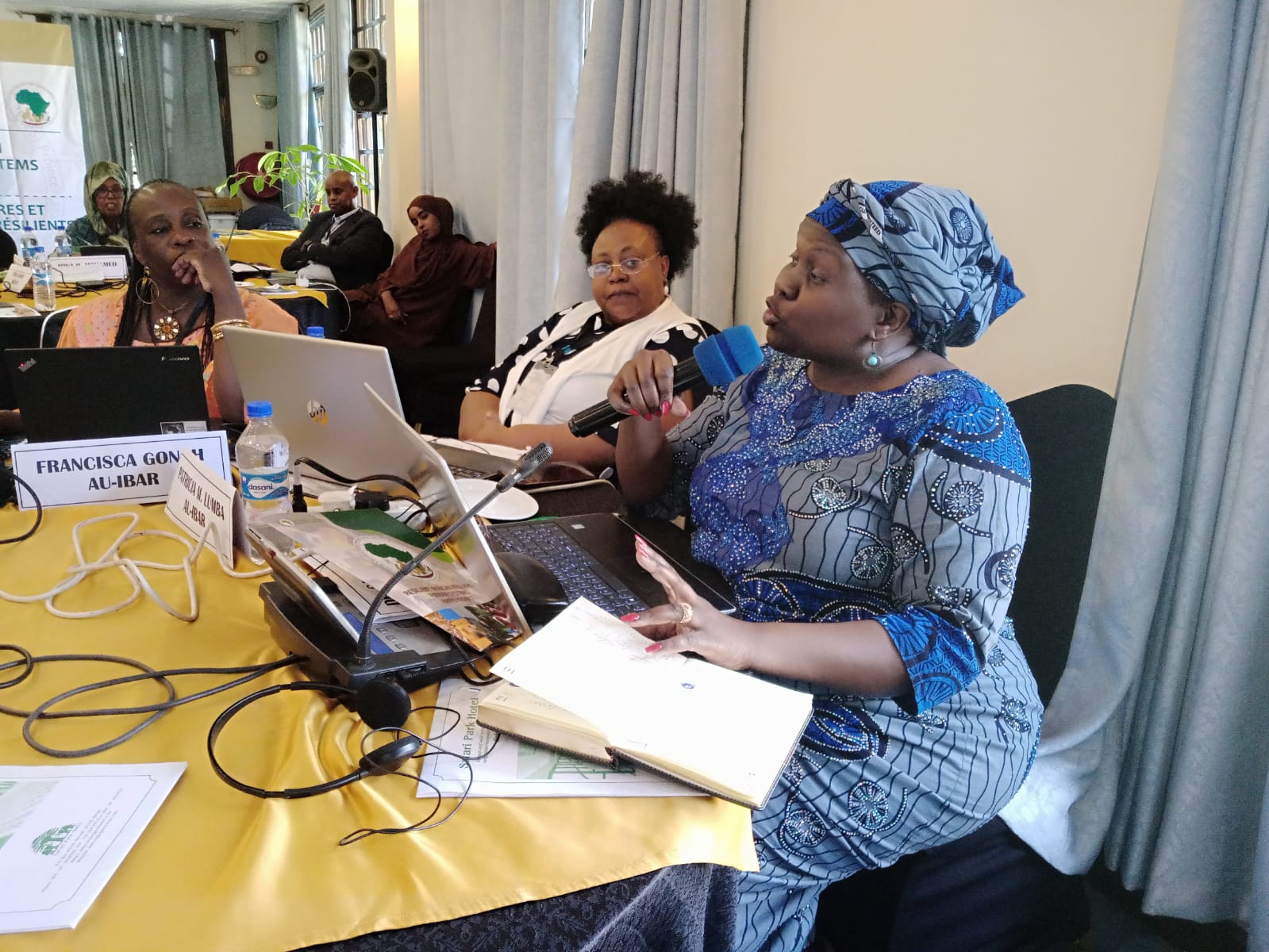NAIROBI, Kenya, Feb 5 – In a resounding call to action, experts and various stakeholders from across 6 African countries say the feed and fodder sector must be reformed for its full potential to be realized.
At the center of the calls is the need to involve women in a more pivotal role, in a bid to drive economic growth and foster resilience in the face of global challenges like climate change, global COVID-19 pandemic and conflict between Ukraine and Russia.
“We must change the narrative,” African Union-InterAfrican Bureau for Animal Resoruce’s (AU-IBAR) Dr Sarah Ashanut Ossiya said. “It is us who decide it and to articulate it.”
https://www.capitalfm.co.ke/news/2024/02/enough-of-the-talk-action-now-stakeholders-appeal-for-change-in-feed-and-fodder-sector/
Continue Reading
https://www.standardmedia.co.ke/business/business/article/2001489615/kenya-hosts-high-level-meeting-on-livestock-sector-challengesAfrican Union-InterAfrican for Animal Resources (AU-IBAR) Director Dr Huyam Salih said the three crises commonly referred to as “the three C’s” exposed Africa’s vulnerability, leading to eroded livelihoods, loss of incomes, and driven up prices of highly nutritive livestock sourced foods making them inaccessible to sections of the population that need them most.
Continue Reading
A high-level meeting meant to adopt strategies to address the current Africa's feed and fodder crisis kicked off in Nairobi on Monday, bringing together a host of experts from the continent.
The five-day Resilient African Feed and Fodder Systems (RAFFS) Project Technical and Steering Committee meeting is being hosted by the African Union-InterAfrican for Animal Resources (AU-IBAR).
The RAFFS Project was rolled out in January 2023 and has focused on understanding the situation of the effect of the global COVID-19 pandemic, climate change and conflict between Russia and Ukraine in the feed and fodder sector.
View Full Post and Comments
Kenya will on Monday host a high-level five-day workshop to discuss feed and fodder shortage, and the adverse effects the crisis has caused- including a sharp increase in nutritious foods sourced from livestocks.
We are all crying about the high cost of eggs and milk, which is a direct impact of the feed and fodder shortage crisis.
With the ongoing war between Russia and Ukraine, growing effects of climate change and the global COVID-19 pandemic, the situation is dire, unless mitigative researched-based measures are adopted.
Continue Reading
In her country Zimbabwe, Jacquie Gowe is nicknamed ‘Queen Bee’. A coincidence since she comes from a tribe that is known for loving “sweet and sophisticated things,” in Maungwe.
Her nickname, Queen Bee, was derived from her daily job; she keeps bees for a living, as well as training women on beekeeping. Through her beekeeping, she is a major contributor to the feed and fodder sector.
So far, through her organization Sweet Maungwe, Gowe has trained more than 5,000 women.https://www.capitalfm.co.ke/news/2023/07/meet-queen-bee-the-zimbabwean-woman-empowering-thousands-of-women-in-beekeeping-agribusiness/#:~:text=Her%20nickname%2C%20Queen%20Bee%2C%20was,trained%20more%20than%205%2C000%20women.
“I keep bees of honey production, process it and package it. My passion is to train women for honey production,” she said.
Gowe was speaking at the sidelines of the ongoing five-day workshop by the African Union-InterAfrican Bureau for Animal Resources (AU-IBAR) in Kenya, to discuss ways to overcome the current feed and fodder shortage.
Gowe also attended the Workshop as a member of the African Union’s Africa Women in Animal Resources Farming and Agribusiness Network (AWARFA-N).
Continue Reading
A chronology of events detailing the intensity and impact of drought in successful years has painted a grim picture of the future, necessitating a need for mitigative measures to be adopted, and more so to cushion the feed and fodder sector.
The sector is currently facing a crisis due to a widespread shortage of feed and fodder, due to the three C’s; climate change, COVID-19 pandemic and the Russia-Ukraine conflict.
African Union- InterAfrican Bureau for Animal Resources has initiated an ambitious project dubbed Resilient African Feed and Fodder Systems (RAFFS) project, to help targeted African countries overcome the challenge.
RAFFS project officer Dr Sarah Ashanut Ossiya says the recent drought from late 2020 to 2022 and early 2023, “had the unprecedented feature of being the first with five consecutive rainy season failures, a climatic event not seen in 40 years, with massive loss of livestock and wildlife.”https://www.citizen.digital/news/raffs-project-launched-to-cushion-african-countries-against-animal-feed-and-fodder-shortages-impact-n324291
Continue Reading

